Texas Housing Insight March 2025 Summary
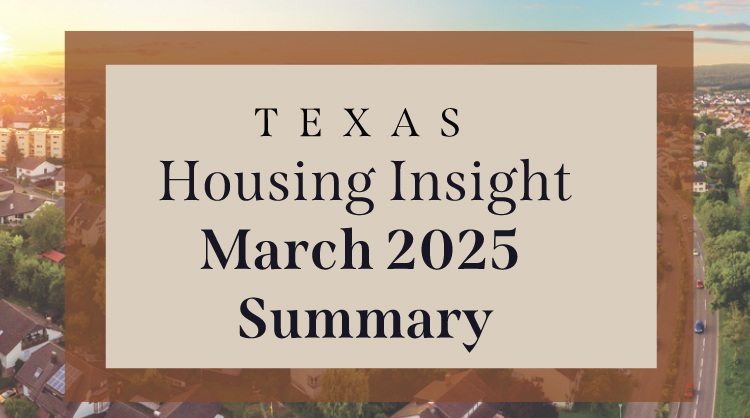
All measurements are calculated using seasonally adjusted data, and percentage changes are calculated month-over-month, unless stated otherwise. Total home sales declined in first quarter 2025. The recent surge in inventory was not enough to counteract a slowdown in home sales, with February and March contributing to the overall decline. As mortgage rates held high near […]
Texas Housing Insight February 2025 Summary
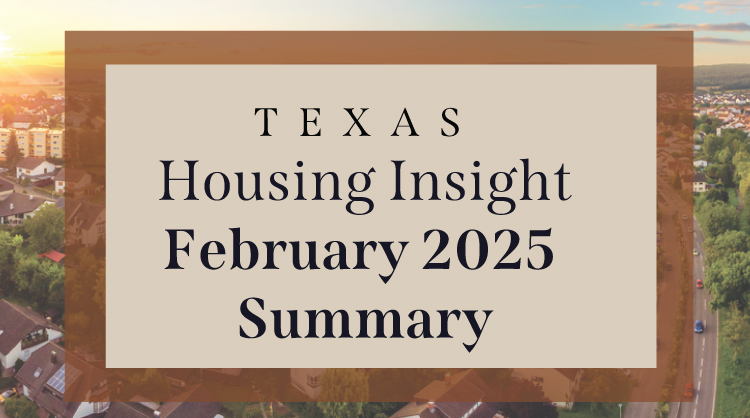
All measurements are calculated using seasonally adjusted data, and percentage changes are calculated month-over-month, unless stated otherwise. The Texas housing market reflected ongoing challenges in February 2025, with weak home sales a reminder of low affordability and cautious buyer behavior amid economic uncertainty. Home sales ranked among the weakest on record for a February since […]
Texas Housing Insight January 2025 Summary
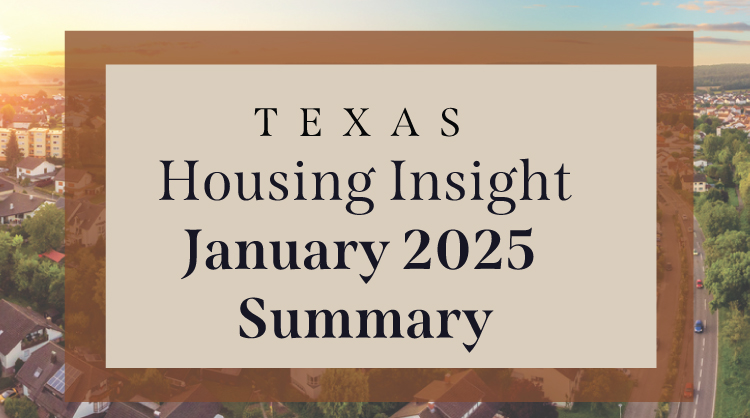
All measurements are calculated using seasonally adjusted data, and percentage changes are calculated month-over-month, unless stated otherwise. The latest housing data show conditions have shifted in favor of homebuyers as the spring homebuying gets underway. In particular, the housing inventory has been building up for some time now and reached levels not seen in a […]
Texas Housing Insight December 2024 Summary
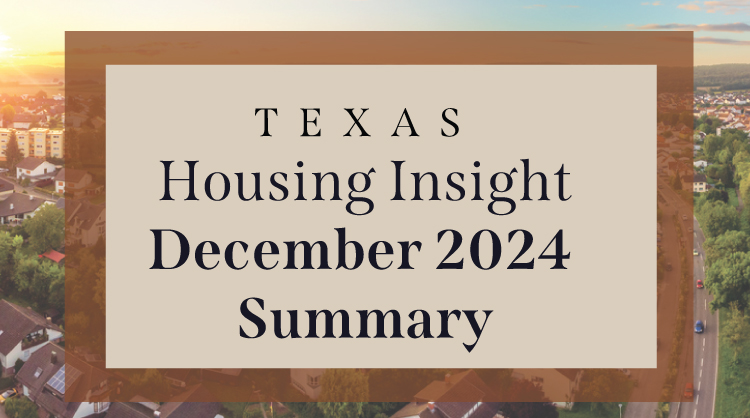
All measurements are calculated using seasonally adjusted data, and percentage changes are calculated month-over-month, unless stated otherwise. In a sign of stabilization, Texas’ home sales rose significantly in December to deliver a strong fourth-quarter finish going into 2025. Rising sales were seen broadly across all major markets (Austin, Dallas-Fort Worth, Houston, and San Antonio) as […]
Texas Housing Insight November 2024 Summary
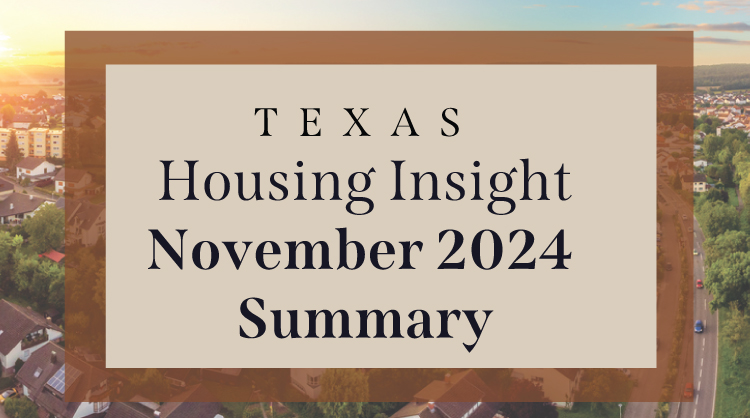
Home sales typically cool off by October following the busy summer homebuying months. This year is a little different as sales in both September and October came in higher than they did during the summer. With the sales momentum extending into early fall, November total home sales took an expected seasonal downturn. Housing inventory is […]
7 Reasons Why Every Homebuyer Needs Owner’s Title Insurance

BUYING A HOME IS AN EXCITING AND EMOTIONAL TIME FOR MANY PEOPLE. TO HELP YOU BUY YOUR HOME WITH MORE CONFIDENCE, MAKE SURE YOU GET OWNER’S TITLE INSURANCE. HERE’S WHY IT’S SO IMPORTANT FOR YOU: PROTECTS YOUR LARGEST INVESTMENT A home is probably the single largest investment you will make in your life. You insure […]
Texas Housing Insight October 2024 Summary

All measurements are calculated using seasonally adjusted data, and percentage changes are calculated month-over-month, unless stated otherwise. Home sales typically cool off by October, but this year is a little different with sales in both September and October higher than they were during the summer. The rate of new listings is still on the rise […]
What You Should Know About Buying a House in 2025

As we welcome 2025, the North Texas real estate market is shaping up to be one of the best in the country. Ranked No. 1 for real estate investment in the Urban Land Institute’s annual Emerging Trends in Real Estate forecast, DFW continues to attract attention for its stability, affordability, job growth, and economic diversity. […]
2025 TREC Contract Changes – Important Things You Need to Know & Highlights of the Changes
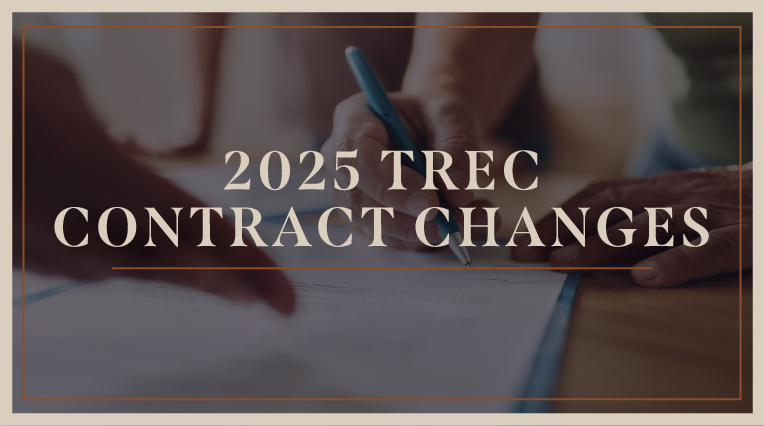
On November 4, 2024 the Texas Real Estate Commission adopted form revisions recommended by the Texas Real Estate Broker-Lawyer Committee. “The updated Condominium Resale Certificate (TREC No. 32-5) is a voluntary-use form. All remaining contract forms adopted by reference are available for voluntary use until January 3, 2025, when their use becomes mandatory.” THE FOLLOWING FORMS HAVE […]
Selling an Estate After a Death

Selling a property out of an estate after an owner has passed away can be a complex and emotional process. For many, it’s a first-time experience that comes with a steep learning curve. This guide will help clarify common misconceptions, address frequent complaints, and explain the key steps to ensure a smooth transaction. Whether you’re […]
